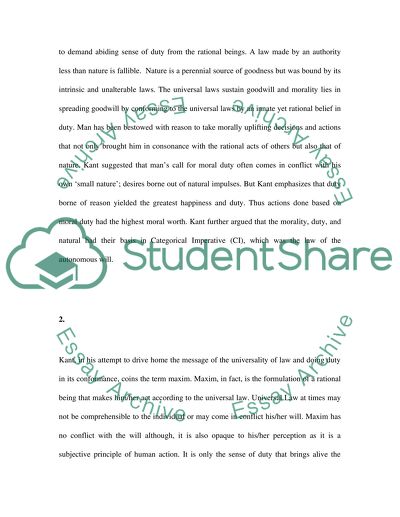Philosophy - Introduction to Ethics Essay Example | Topics and Well Written Essays - 500 words. Retrieved from https://studentshare.org/miscellaneous/1545177-philosophy-introduction-to-ethics
Philosophy - Introduction to Ethics Essay Example | Topics and Well Written Essays - 500 Words. https://studentshare.org/miscellaneous/1545177-philosophy-introduction-to-ethics.


